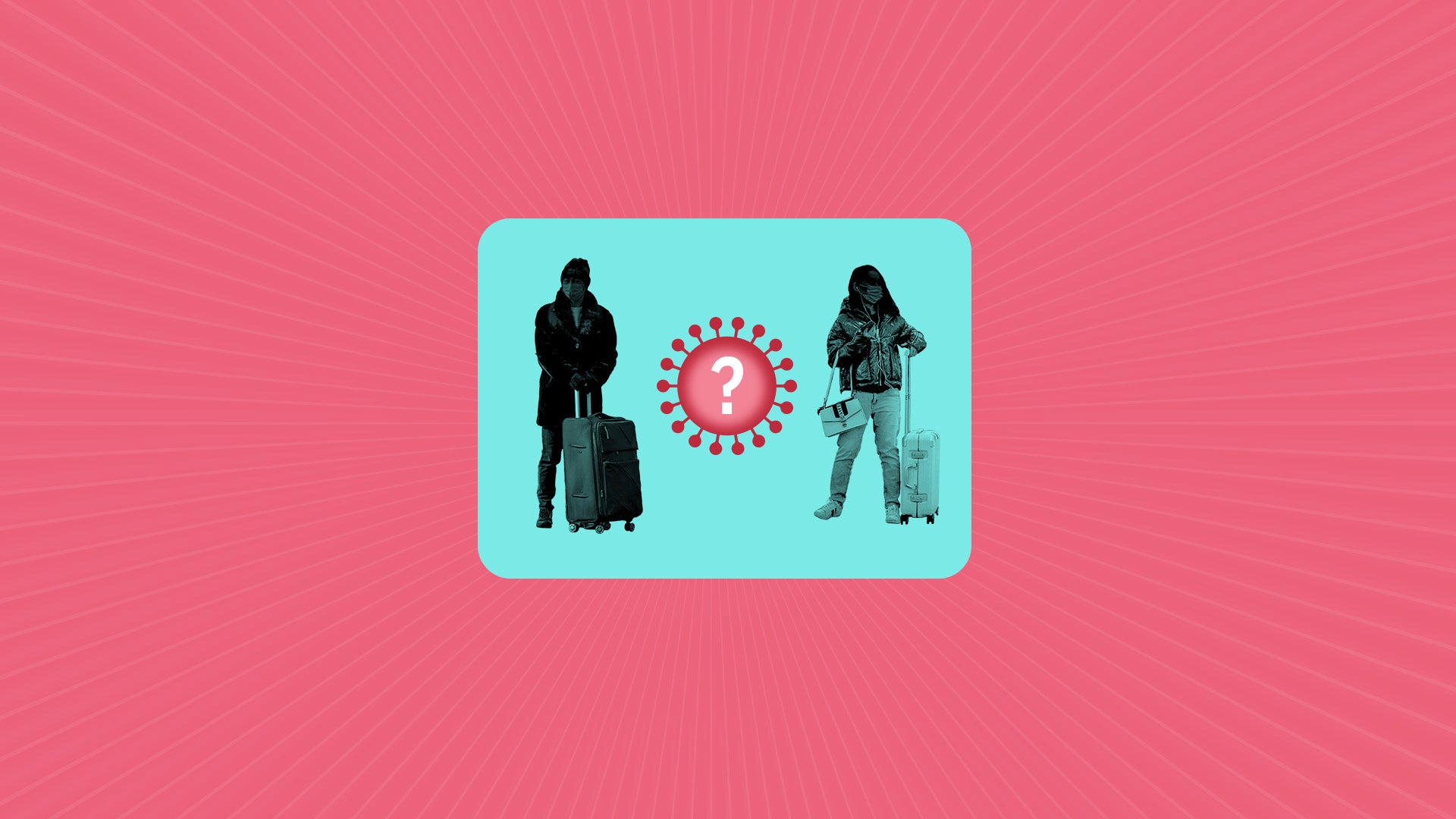What happens if I get COVID-19 while traveling?
COVID-19 rules for travelers will vary depending on the destination

Your support helps us to tell the story
From reproductive rights to climate change to Big Tech, The Independent is on the ground when the story is developing. Whether it's investigating the financials of Elon Musk's pro-Trump PAC or producing our latest documentary, 'The A Word', which shines a light on the American women fighting for reproductive rights, we know how important it is to parse out the facts from the messaging.
At such a critical moment in US history, we need reporters on the ground. Your donation allows us to keep sending journalists to speak to both sides of the story.
The Independent is trusted by Americans across the entire political spectrum. And unlike many other quality news outlets, we choose not to lock Americans out of our reporting and analysis with paywalls. We believe quality journalism should be available to everyone, paid for by those who can afford it.
Your support makes all the difference.What happens if I get COVID-19 while traveling?
Depending on your destination, it could result in an unexpected change in plans, such as being required to stay isolated in a hotel.
It's why the U.S. Centers for Disease Control and Prevention recommends that you have backup plans ready if you're traveling abroad. You might have to stay longer than planned if you test positive.
In some places, you won't be able to board flights until you test negative. In others, you might also be required to stay in a quarantine facility.
Since results from a PCR test can remain positive for weeks after an infection, those who have had COVID-19 might have to get documentation from a doctor or health authorities saying they've recovered. Some travel only requires an antigen test.
If you end up needing medical treatment, check with your embassy for suggested health care providers. Keep in mind that some countries still have overwhelmed health care systems due to the pandemic.
Plan time for recovery since some countries — including the U.S. — require a negative test for reentry. Exceptions to this policy may be granted on an “extremely limited” basis, such as in the event of an emergency medical evacuation or humanitarian crisis, says the CDC.
It also helps to be financially prepared to pay unexpected bills. While it varies country to country, travelers are often responsible for costs associated with any isolation or medical treatments needed.
Travel companies suggest getting insurance that will cover the cost of treatment, isolation or rescheduled travel plans. Some countries require that you have insurance before you’re allowed to enter.
___
The AP is answering your questions about the coronavirus in this series. Submit them at: FactCheck@AP.org. Read more here:
What do we know about the new omicron mutant?
Can your pet get COVID-19?
How has the COVID-19 pandemic changed after two years?